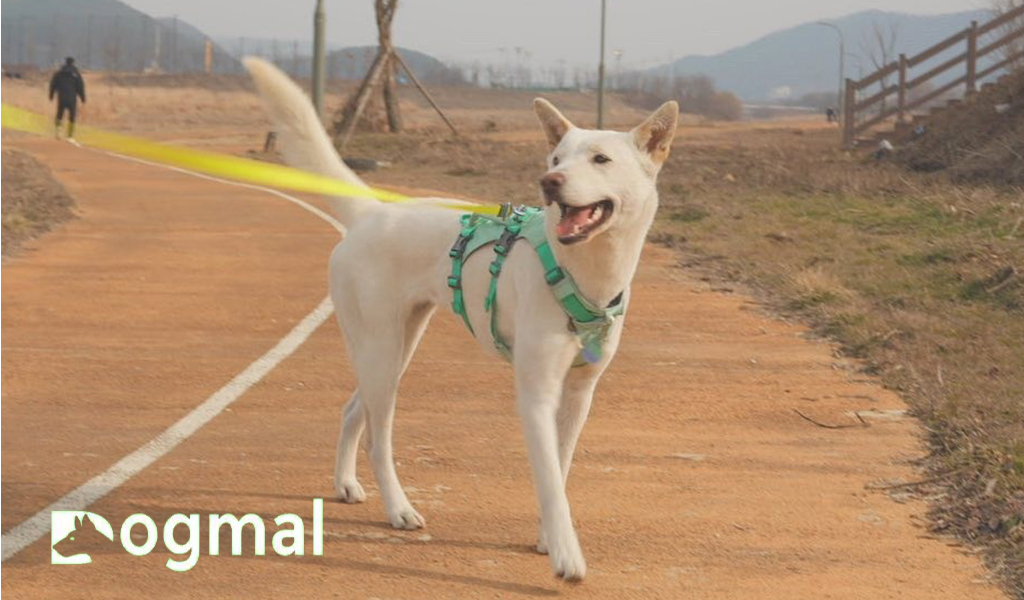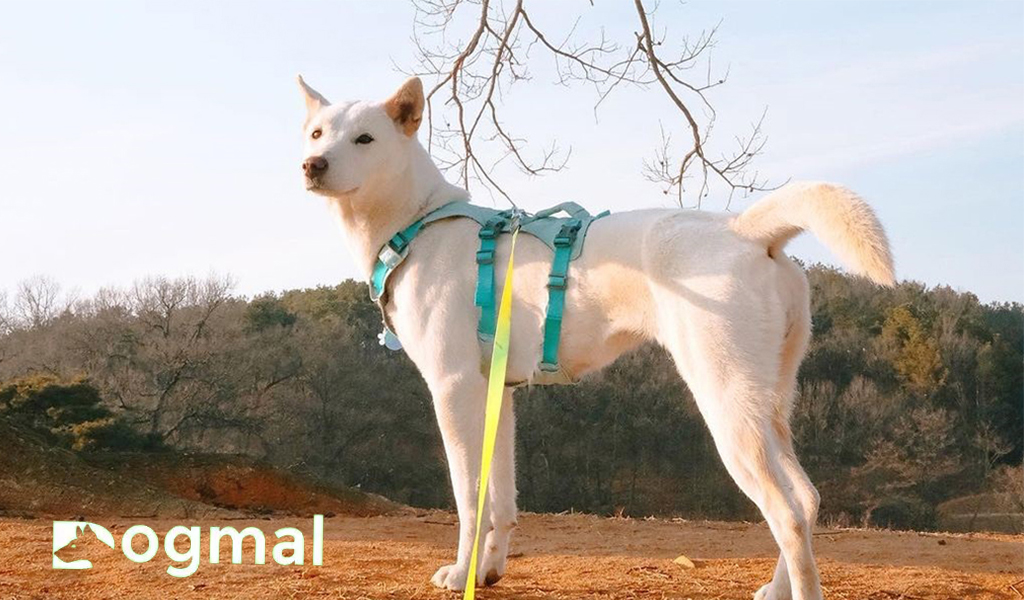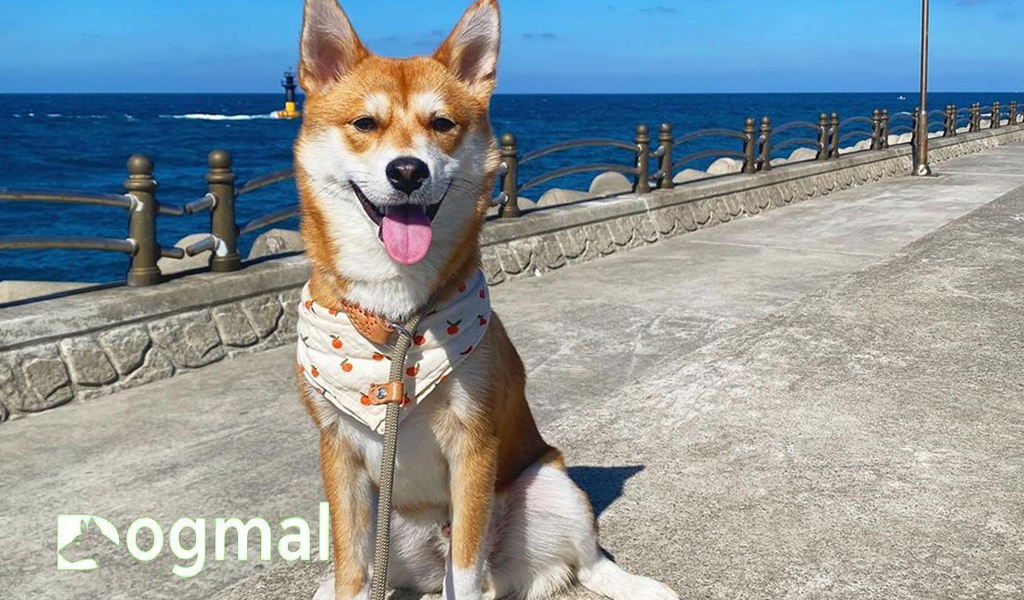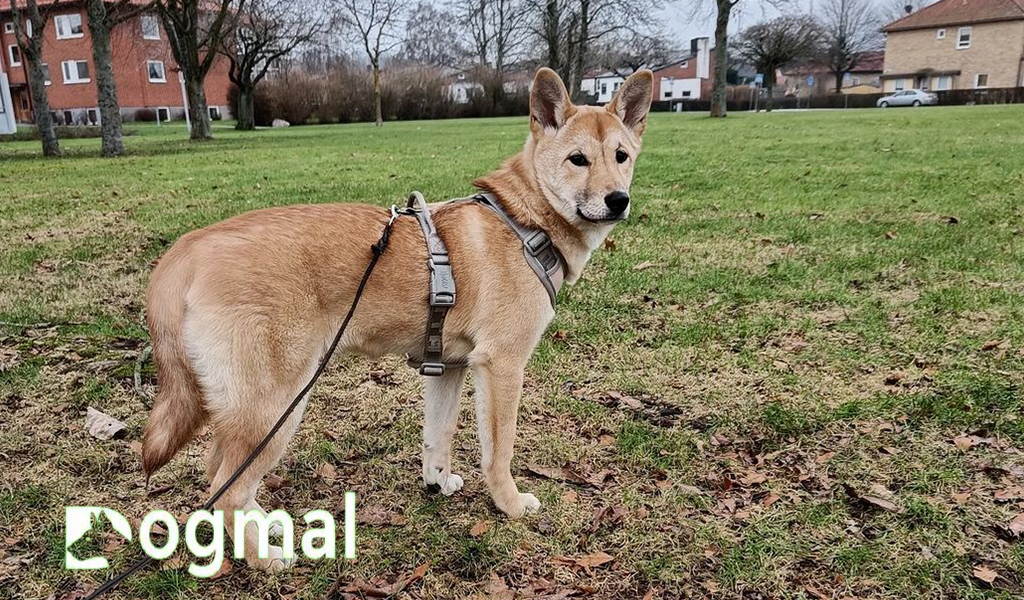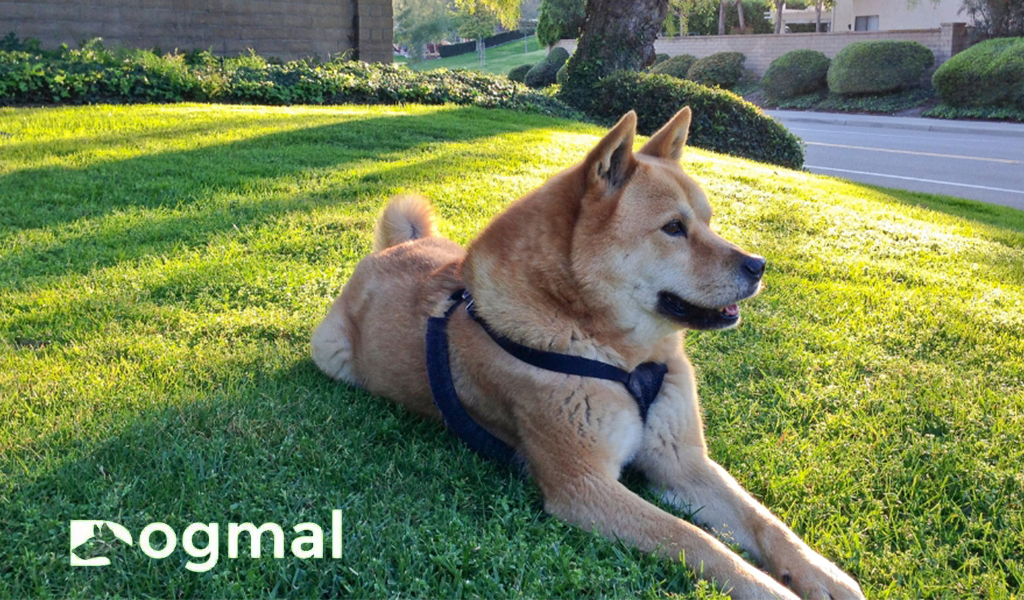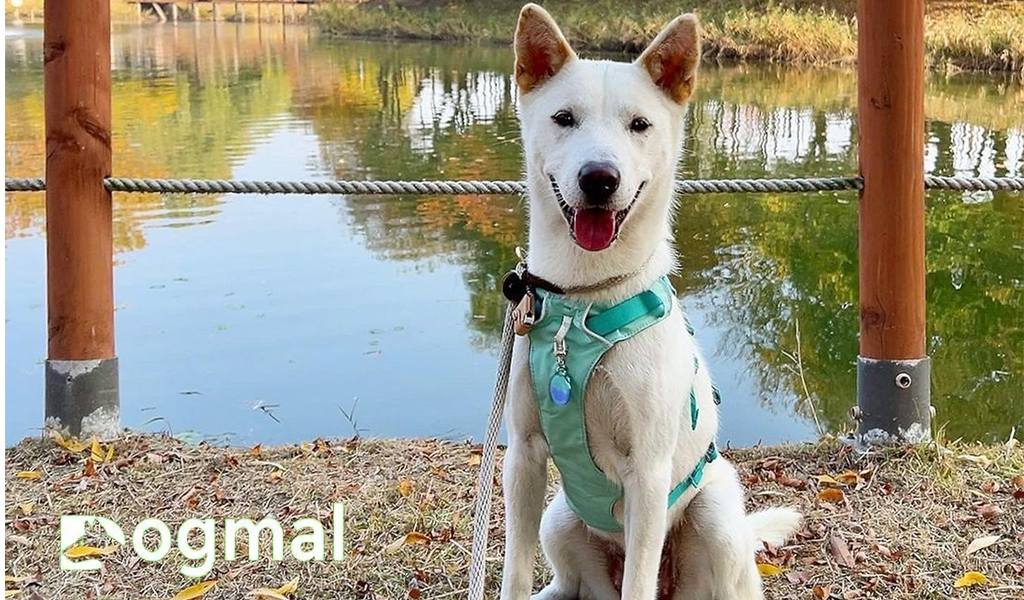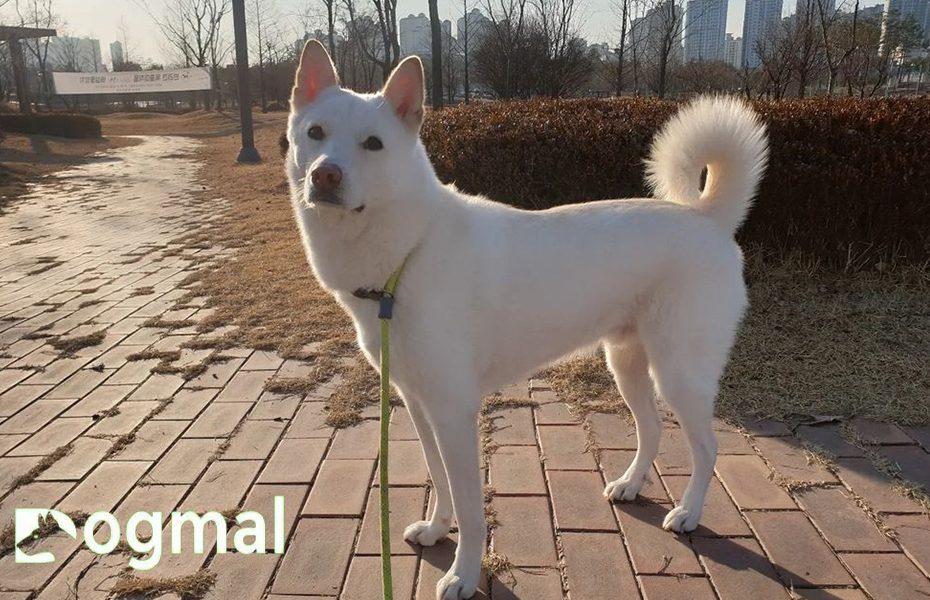The Jindo Dog is a friendly, capable hunter and watchdog. She was loyal, cautious and intellectual. It originated on an island off the coast of South Korea. Medium-sized and autonomous, respected for their physical attributes as natural hunters, responsible guardians and devoted friends.
They are fearless, brave, cautious, and have a keen sense for hunting. The national caste of Korea is called Jindo, after the Korean island of the same name. They continue to maintain dominance over other canines despite having previously been employed in dog fights.
Highlights/Content
- History of Jindo Dog
- Breed Overview
- Appearance
- Temperament
- Health
- Jindo Dog Care
- Advantages and Disadvantages
- Photo gallery
History of The Jindo Dog
The genus name Jindo is derived from a small island called Jindo off the coast of South Korea. Jindo had been known on the island for thousands of years. Where he lived among the people yet was free to travel. According to South Korea’s Cultural Heritage Agency, dogs are believed to have been introduced to South Korea around 220 AD, when an offshore Chinese trading ship capsized.
Jindo is revered as a national treasure in Korea. Jindo participated in the opening ceremony of the 1988 Olympic Games. The United Kennel Club in the United States recognizes the Jindo as a member of the northern racial subgroup.
The Foundation Stock Service of the American Kennel Club recognized the Jindo breed in 2008. They are not yet eligible to participate in premiere AKC competitions like Westminster Kennel Club Dog Show. Jindo is excellent in dexterity tasks, though it is not allowed to participate at some levels.
Jindo Dog Overview
- Origin: Korea, Jindo island
- Nick Name: Korean Jindo, Korean Dog, Jindot-gae
- Life Span: About 15 Years
- Height: 17-22 Inch
- Weight: 33-50 Pound
- Coat: Medium Length, Double coat
- Color: Red fawn, White, Black, Black and Tan, Wolf grey, Brindle.
- Litter Size: 4-8 Puppies
- Breed Size: Medium
- Energy Level: Active
- Exercise Need: High
- Barking level: When necessary
- Patterns: Brindle, Black and Tan
- Breed Group: Sporting
Appearance
Jindo Dog is a medium-sized animal, and its sharp body frequently mirrors its uncomfortable disposition. They are comparable in beauty to the Siberian Husky and the Pomeranian, but even the spitz-car dog is more attractive. Their body is somewhat longer when measured from the point of the shoulder to the point of the buttocks.
White, grey, fawn, black, tan, and brindle are all covered in the thick double layer of Jindo. It has dark brown, almond-shaped eyes, and when it is prepared to make another move, it deploys each Jindo with a complete “puppy dog look.”
His triangular ears are usually used for warning. Apart for the fact that a white dog can have a meat-colored nose, his nose is black. The usual spitz tail will coil on the animal’s back.
Temperament
The Jindo dog has a courageous and fearless character. They form incredibly close bonds with their owners and their house. These amazing dogs are intelligent, watchful, and battle for the best position in the pack hierarchy. These self-assured creatures will test unskilled handlers.
Intelligent predators with powerful instincts and a strong need to rule their area are skilled Jindo artists. They devise strategies to remove their fence and protect their lands from any purported invaders. Jindo will respond with a deep echo if it is under danger.
Because of their considerable willingness to meeting new individuals, jindos fare poorly in a variety of homes. if it has been taught to be a security dog.
Health
The Jindo is a generally wholesome and robust breed. The breed has been linked to a number of health issues, according to the Jindo Association of America, the country’s official breed group. It involves specific issues with hypothyroidism and discoid lupus erythematosus.
Hypothyroidism: Many species, including cattle, are susceptible to a condition known as hypothyroidism. It first appears as hair loss and a thin, dirty coat. The dog will get flaky skin, although not necessarily itchy. Later hypothyroidism results in weight gain and fatigue.
Allergies: The skin allergy known as atopy is common in rhinos. This can cause itching, rash and redness. It is possible that the dog will repeatedly lick, claw or rub the injured area. It mainly appears in the skin folds of the legs, abdomen and ears.
Autoimmune Disease: Skin conditions called pemphigus foliaceus typically affect the ears and nose. it can also show up on their toenails and footpads.
How To Jindo Dog Care?
The Jindo was used primarily for hunting and guarding the home. They have lots of energy and a tendency to chase and kill lots of animals. Need regular exercise and socialization, so they should share a home with an active family. Socialization training is essential for that. He should be very careful about health. A schedule should be made for proper diet.
Feeding
The High-quality dog food should be beneficial for Jindo. Every diet should be suitable for the age of the dog. Feed Jindo premium brand dog food. Eat separate meals using a measuring cup or scale instead of missed meals throughout the day to avoid overeating.
The Jindo needs a diet high in protein as it is an active hunting and guard dog. Fresh, clean water must always be accessible. The digestive systems of jindos are designed for a carnivorous diet. Jindos should avoid eating a lot of foods that include maize.
Home-cooked meals with natural foods and specific supplements are a viable and accessible alternative for Jindos. Eating free food can lead to weight gain. Being overweight and obese can worsen existing health problems and lead to joint damage.
Exercise
The Jindo race has collaborated with humanity for most of the past era. They are an intense breed with lots of energy. They can go to great lengths to retrieve game to get it back to their owner.
It’s also crucial to provide mental stimulation through games or tricks. While taking the Jindo on a walk, use a sturdy leash and harness, and be ready to restrain them if they come across another dog. For the same reasons, stay away from the dog park.
All dogs have the potential to be destructive if they are not given enough exercise. In numerous dog activities, including agility, hunting and obstacle courses, rhinoceros are often successful.
Grooming
The Jindo is a hardy breed that needs its double coat brushed once a week with a slicker or pin brush. They are famous for being careful and orderly.
Apart from the seasonal shedding that occurs twice a year, they do not shed and do not shed much.
Their coats only require weekly brushing to reduce shedding. Sometimes they need a wash to keep them looking their best throughout the year.
While they are a tidy breed, they still require regular grooming. Even jindos need their nails trimmed. Regular dental care should include both professional cleanings and daily brushing. Check and clean their ears regularly for wax and debris to avoid infection.
Training
Training for every dog is very important to its life development. Despite their high intelligence, Jindos are difficult to train. Unlike some other breeds who are willing to take tricks and orders. They lack a strong desire to please people and are autonomous.
These monsters are very smart and can pick up a lot of tricks and instructions. Positive reinforcement training is often favorably received. Early and regular training and socialization are crucial to teaching Jindo to accept other dogs and strangers. He is a dog person. They require less training to become housewives, therefore.
Advantages and Disadvantage of Jindo Dog
Advantage
- It is an excellent watch dog
- They are beautiful and intelligent dogs
- Live a good life with very few health problems.
Disadvantage
- These dogs are not safe with other pets.
- They can be very difficult to train.
- Jindo Dog is aggressive towards strangers
Also Read: Silver Lab Dog Breed
Jindo Dog Photo Gallery
